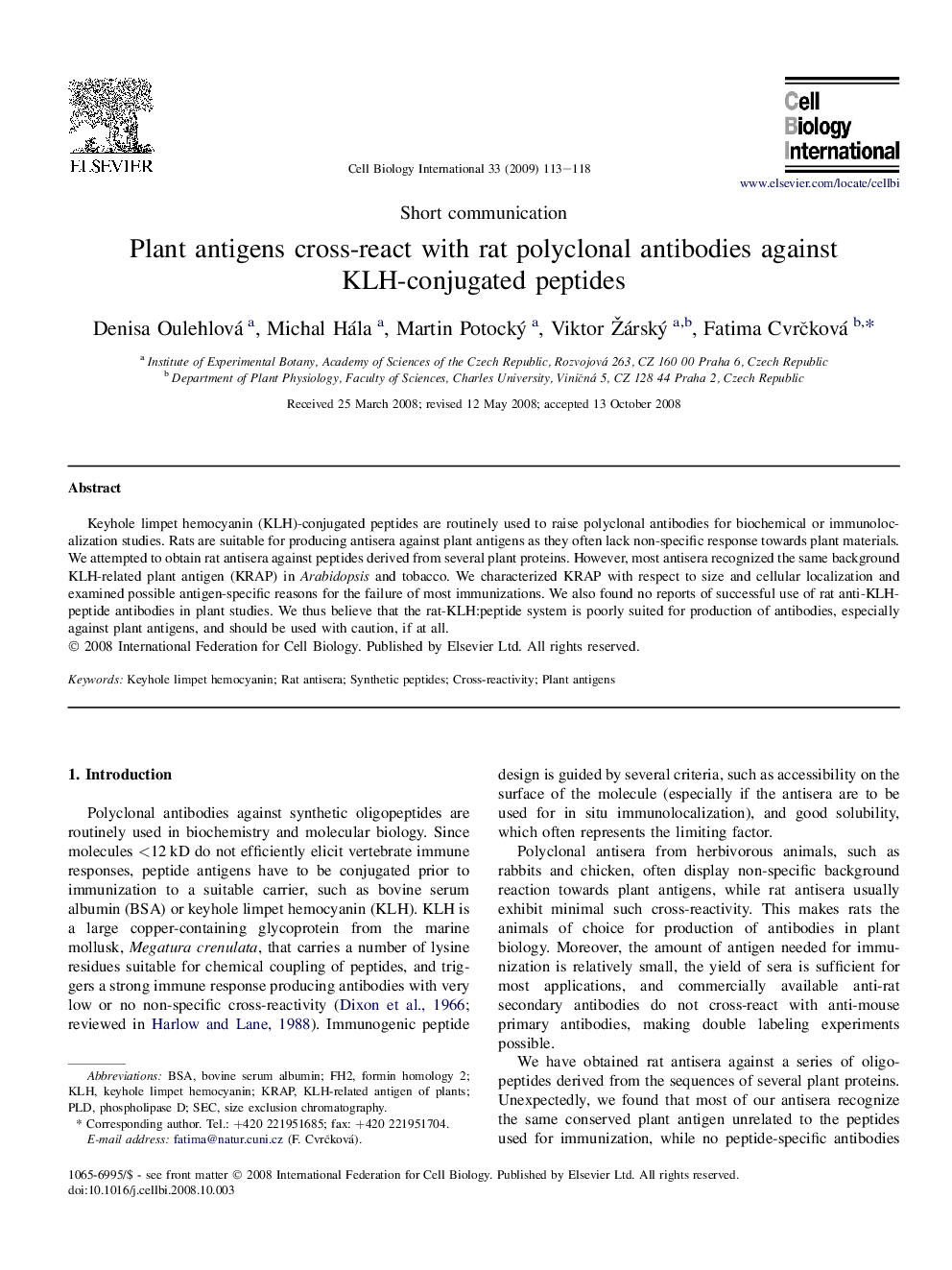| Article ID | Journal | Published Year | Pages | File Type |
|---|---|---|---|---|
| 2067100 | Cell Biology International | 2009 | 6 Pages |
Abstract
Keyhole limpet hemocyanin (KLH)-conjugated peptides are routinely used to raise polyclonal antibodies for biochemical or immunolocalization studies. Rats are suitable for producing antisera against plant antigens as they often lack non-specific response towards plant materials. We attempted to obtain rat antisera against peptides derived from several plant proteins. However, most antisera recognized the same background KLH-related plant antigen (KRAP) in Arabidopsis and tobacco. We characterized KRAP with respect to size and cellular localization and examined possible antigen-specific reasons for the failure of most immunizations. We also found no reports of successful use of rat anti-KLH-peptide antibodies in plant studies. We thus believe that the rat-KLH:peptide system is poorly suited for production of antibodies, especially against plant antigens, and should be used with caution, if at all.
Keywords
Related Topics
Life Sciences
Biochemistry, Genetics and Molecular Biology
Biophysics
Authors
Denisa Oulehlová, Michal Hála, Martin Potocký, Viktor Žárský, Fatima CvrÄková,
